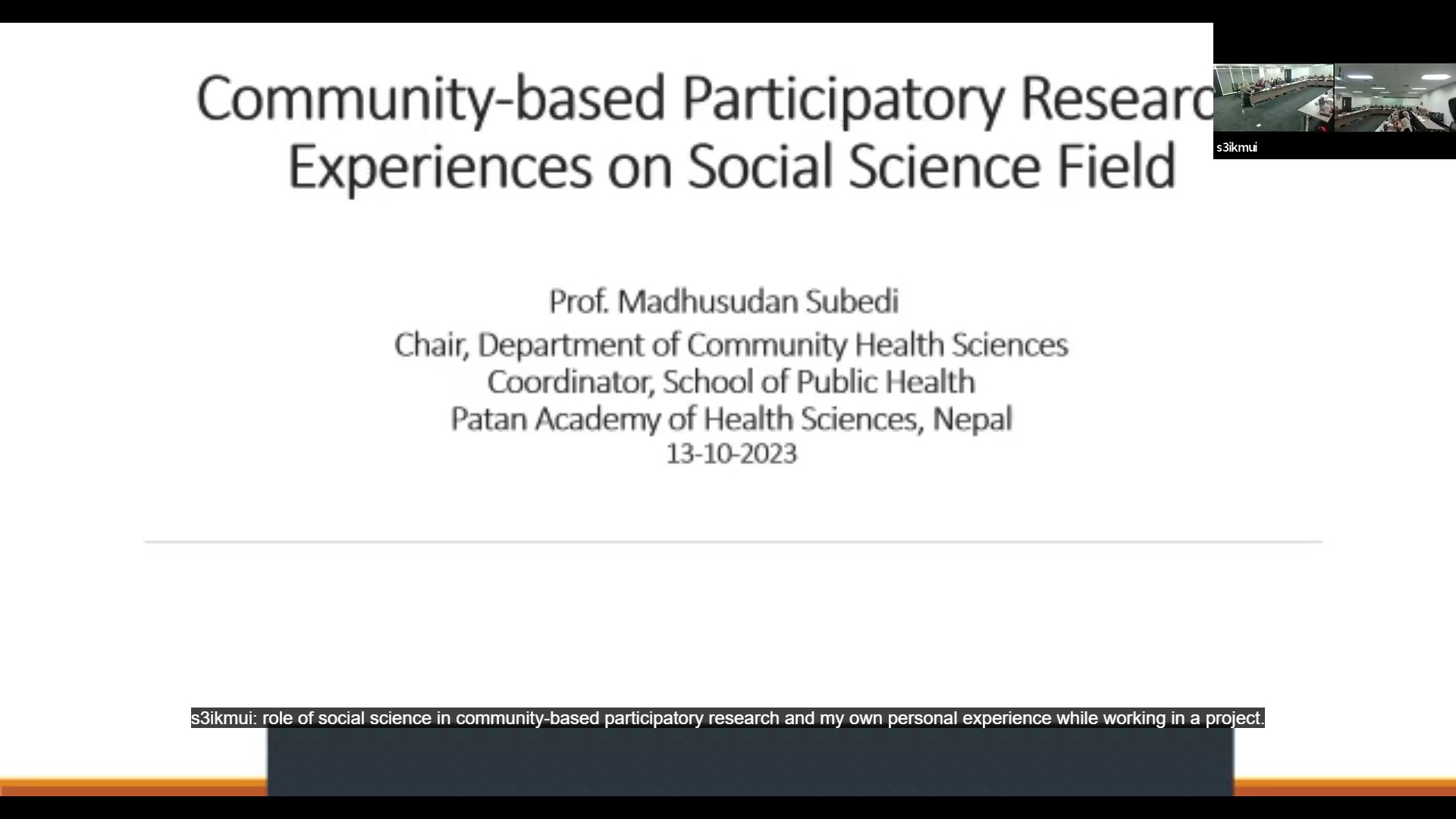
Friday, October 13, 2023, FPH UI’s Doctoral Program in Public Health Sciences held a hybrid seminar entitled “International Seminar on Methodology and Publication.” The Dean of FKM UI, Prof. dr. Mondastri K. Sudaryo, M.S., D.Sc., gave a speech and opened the seminar. “One of the research methods that we often use is mix method, which will also be discussed in today’s seminar. Hopefully, all participants can learn from the speakers about research methodology and publications,” he said.
Four different topics were presented by 4 speakers. Prof. Marjolein BM Zweekhorst from Vrije Universiteit Amsterdam shared her experience in publishing research results. When conducting research, Prof. Marjolein always describes the community and environment of the research area first. He also integrates all the knowledge she has so that the research carried out has high quality. “Quality publications are born from quality research. Quality research itself can start from good research methods, then good data, and good data analysis. All these components will later lead to good research publications,” said Prof. Marjolein.Seminar Internasional tentang Metodologi dan Publikasi Hadirkan Narasumber Ahli dari Belanda, Nepal dan Indonesia.

Furthermore, Dr. Ruth MH Peters from Vrije Universiteit Amsterdam shared about “Mixed-Method: An Application of Participatory Research.” According to Dr. Ruth, many health problems can only be solved with a combination of social studies and science, one of them is the problem of disease stigma. “In this intervention, I used mixed method research: qualitative methods to explore the source’s story through interviews and focus group discussions and quantitative methods using 5 measurement tools,” said Ruth. This mix method is used to convince many people, especially policy makers. “We use qualitative methods to narratize the story, then use quantitative methods to prove the data. Integrate the two and you have a complete analysis,” Ruth added.
The third speaker, Prof. Madhusudan Subedi from the University and Patan Academy of Health Sciences, Nepal then presented a topic on Community-Based Participatory Research (CBPR). CBPR is a collaborative research approach that engages target communities to improve the quality of public health through action and social change. “CBPR is beneficial for both researchers and communities. Through CBPR, researchers can get to know the target community better. Meanwhile, the community is also involved in the intervention and can directly see the changes that occur,” said Prof. Madhusudan. Prof. Madhusudan shared his experience when conducting research with the CBPR approach in Nepal. Prof. Madhusudan’s research team had many direct interactions and informal discussions with local communities. His research team also established relationships with policy makers with the aim that the intervention could achieve maximum results.

“The principle of ChatGPT is You get what you give. In the use of intelligent computer programs like ChatGPT, we must give a good prompt to get good results. Explain our background, expect the answer we need, and then state the question,” said Dr. Ario Yudo Husodo, S.T., M.T, Internationally Certified Prompt Engineer – ChatGPT, who presented the session “ChatGPT for Literature Review.” Amidst the controversy of using ChatGPT, Dr. Ario believes that the program can help academics in conducting research. In the academic world, ChatGPT can be used to help doing assignments, creating educational content, tutoring, giving advice, and explaining science concepts. “The key to using ChatGPT is always explaining the context of the question, role, restrictions, preferred answer length, and additional information needed. If used properly and wisely, ChatGPT can really help us to conduct research, especially literature review,” concluded Dr. Ario, who presented the last material in that series of seminars. (WR)

